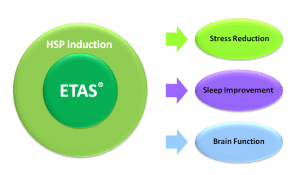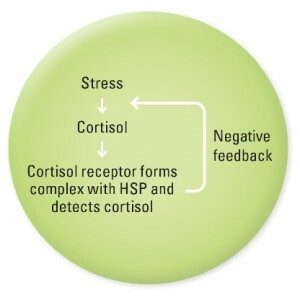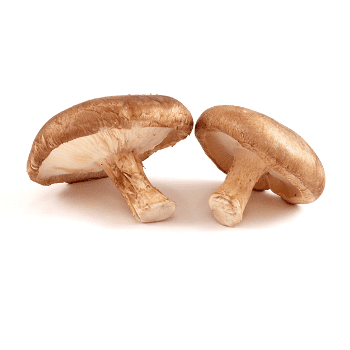ETAS® is a standardized asparagus extract which alleviates the effects of stress by controlling the levels of cortisol. ETAS® also shows a clinically validated efficacy for sleep improvement, support of mood and cognitive function, and protection of neuronal cells. ETAS® active components are natural molecules with a capacity to induce cytoprotective heat-shock proteins.
ETAS®, a standardized Asparagus extract
Asparagus (Asparagus officinalis) is used in traditional medicine for its multiple health-supporting properties including diuretic, hypolipidemic and hypoglycemic effects.
Researchers from Japanese universities, and from the Hokkaido-based company Amino-Up Co., have uncovered a new property of Asparagus. Amino-Up’s proprietary ingredient ETAS®, obtained from Asparagus stalks, displays clinically proven benefits on stress-relief, sleep control, and cognitive function. ETAS® beneficial effects mostly derive from its capacity to induce the expression of a major stress-response protein: Heat Shock Protein 70.

ETAS® exerts anti-stress effects
Stress contributes to various psychological disorders such as insomnia, depression, and fatigue. Stress-induced release of the steroid hormone cortisol also leads to physical dysfunctions: immunosuppression, reduction of bone formation and collagen synthesis, damage to neuronal cells.
HSPs are actually called “stress proteins”, since their expression is induced by physical, chemical and biological stresses, but also by psychological stress. HSPs contribute to protect our cells against the deleterious effects of stress. They also play a crucial role in the negative feedback system which controls cortisol levels: activation of the glucocorticoid receptor, which down-regulates cortisol production, requires both HSP70 and HSP90.

ETAS® effect on HSP expression and stress-related markers has been evaluated in several animal and human studies. Consumption of ETAS® leads to an increased expression of HSP70, and a control of the stress markers cortisol and chromogranin A levels in serum and saliva.
ETAS® and sleep improvement
Sleep disorders are commonly associated with stress, and have a serious impact on daytime functioning and quality of life. A human clinical study has shown the ETAS® intake could improve the quality of sleep in people with low sleep efficiency or excess sleep time. It is thought that ETAS® can adjust the succession of rapid-eye movement (REM) and non-REM sleep, leading to better sleep quality and more adequate sleeping time. ETAS® also normalizes circadian rhythm by regulating the expression of melatonin receptors MT1 and MT2.

ETAS® supports cognitive function, mood and memory
Two in vitro studies have shown that ETAS® is able to protect neuronal cells from chemical stresses and amyloid beta-induced damages. These neuroprotective effects may be mediated by HSP induction, but may also result from a direct antioxidant activity, since ETAS® active compounds display some natural free radical-scavenging activity.
Consistent with its protective effect on neuronal cells, ETAS® was found to attenuate cognitive impairment in senescence-accelerated mice, with a prevention of memory decline. In healthy individuals subject to stressful conditions, ETAS® treatment led to an improvement of psychological and cognitive rating (increased number of correct replies to functional tests, improvement of fatigue feeling and mood). These data confirm the potential of ETAS® as a support for cognitive function and mood, in people suffering from fatigue, excess stress or age-related impairments.
Selected references
Ito et al. 2013. J Agric Food Chem. vol. 61(38), pp. 9155-9.
Ito et al. 2014. J Food Sci. vol. 79(3), pp. H413-9.
Ito et al. 2014. J Nutr Sci Vitaminol. vol. 60(4), pp. 283-90.
Sakurai et al. 2014. Nat Prod Commun. vol. 9(1), pp. 101-6.
Ogasawara et al. 2014. Nat Prod Commun. vol. 9(4), pp. 561-4.
Takanari et al. 2016. J Nutr Sci Vitaminol. vol. 62(3), pp.198-205.
Ito et al. 2014. Regul Toxicol Pharmacol. vol. 68(2), pp.240-9.
Chan et al. 2019. Nutrients. vol. 11(7).


